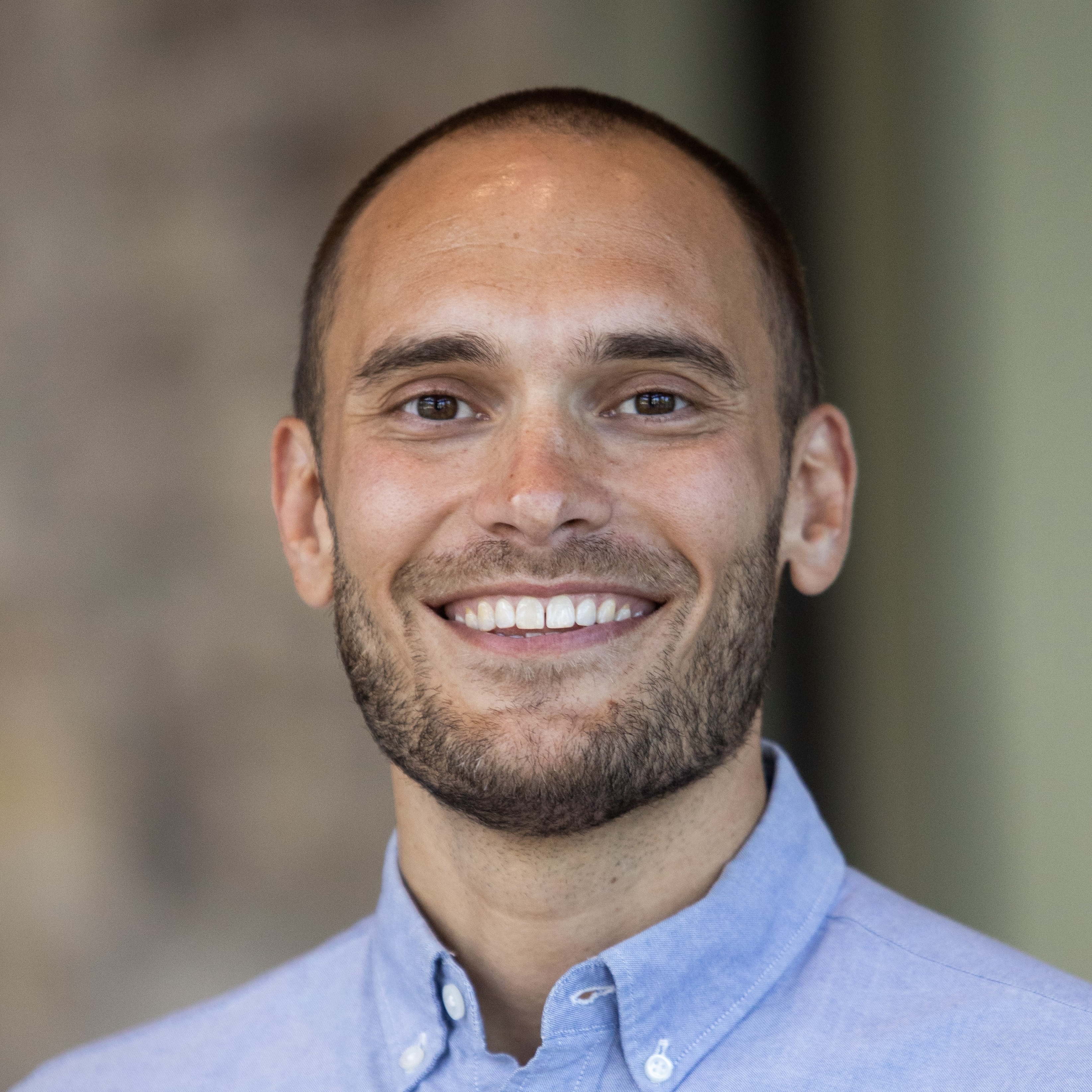Reflections on a Meeting with the Dalai Lama
 Anthony DeMauro is Associate Director of Dalai Lama Fellows at the University of Virginia’s Contemplative Sciences Center. The Dalai Lama Fellows is a global leadership program designed to help young changemakers integrate personal, relational, and systemic transformation. In this role, Anthony manages many aspects of the program including the Head, Heart, and Hands curriculum, coaching of fellows, and planning and delivery of the yearly Contemplative Leadership Assembly.
Anthony DeMauro is Associate Director of Dalai Lama Fellows at the University of Virginia’s Contemplative Sciences Center. The Dalai Lama Fellows is a global leadership program designed to help young changemakers integrate personal, relational, and systemic transformation. In this role, Anthony manages many aspects of the program including the Head, Heart, and Hands curriculum, coaching of fellows, and planning and delivery of the yearly Contemplative Leadership Assembly.
A few months ago, I helped organize an event, “Compassion in Action: A Conversation About Leadership with His Holiness the Dalai Lama,” in Dharamshala, India. The event brought together a group of Dalai Lama Fellows from around the world to converse with the 14th Dalai Lama about compassion’s role in responding to the many challenges humanity faces today. We traveled across the world to seek the wisdom of a spiritual and political leader who has spent decades of his life integrating compassion into his humanitarian work.
In his 89th year of life, the Dalai Lama kept his message simple and clear. He wanted us to remember our shared humanity. No matter the question we posed and how his response began (sometimes even in his characteristically humorous way), he repeatedly circled back to the teaching of shared humanity. He would remind us that underneath all the ways we categorize ourselves and others, we are all human at our core–born of our mothers and sustained by the compassion of our caregivers. He challenged us to root our leadership in a genuine understanding of our shared humanity.
The Dalai Lama’s teaching of shared humanity differs from colorblindness and pretending differences don’t exist. It reminds us that while differences exist, so does our shared experience of being human, of longing for happiness and wholeness. By recognizing and honoring our shared humanity, we become more compassionate and willing to make efforts to alleviate suffering, regardless of who is suffering.
Since the meeting, I’ve been reflecting on what shared humanity means for me and how it can inform my responses to the present catastrophes I witness, such as genocides, climate catastrophe, the resurgence of fascism, and so much more. To be honest, I’ve found this to be quite difficult.
Having studied the Dalai Lama’s teachings for many years, the idea of shared humanity isn’t new to me. I’ve always been able to understand the concept intellectually, but my embodied experience of life reflects a more prominent attention to human differences. I still regularly separate myself and others into “us and them,” “right and wrong,” “deserving and underserving of compassion.” I find this tribalism incredibly difficult to shake, and it significantly governs my attitudes and behaviors.
“I’ve finally met the Dalai Lama!” a part of me contests. “Shouldn’t these teachings come easy to me now?”
A wiser part of me chuckles at the absurdity. Then, it reminds me that the Dalai Lama offers more than an intellectual concept of shared humanity. He is offering a practice.
A practice is any effort to learn and eventually embody a concept. With repeated practice, we get closer and closer to embodiment. Looking deeply enough, I can see I’ve been practicing separation from other humans most of my life. In large part, I’ve been shaped by systems of domination that constantly convince me of and benefit from my embodied separation. Therefore, I know it will be a journey of unlearning and re-shaping to embody shared humanity. It’s going to require practice.
Fortunately, I’m learning several ways to practice shared humanity, both in more “controlled” settings and in the messiness of life. Meditative practices such as “Just Like Me” and loving-kindness and authentic relating interpersonal practices offer me a deeper experience of others’ humanity. Artistic and creative practices help me shift old perspectives and see the world more expansively. Accountability practices such as Transformative Justice and reconciliation aim for healing rather than shame and separation when we need to address harm. I’ve experienced the power of these practices and the felt sense of shared humanity they foster.
Many of the challenges humanity faces today, like genocide and climate catastrophe, are happening at much larger scales than these practices alone can address. However, I can see separation playing a role in these crises, too–of categorization into who is deserving and who is underserving of life. I don’t have any answers or quick fixes here, but I trust that orienting toward shared humanity, perhaps even a sense of shared life, will help us put an end to these harms and heal the wounds.
In the end, as I continue reflecting on shared humanity, I’m grateful for my experience with the Dalai Lama, which expanded my view of what it might take to face today’s challenges. I believe his message of shared humanity is one we need now, more than ever, and I am committed to bringing it into embodiment, one intentional practice at a time.
- A Revolution in the Air: The Wright Brothers Take to the Sky on December 17, 1903
- Musings on National Violin Day
- Making the Promise Real: How a UN Tax Convention Can Fulfill the UNDHR’s Vision
- UVA Club of Atlanta: Virtual Pilates Class
- UVA Club of Vietnam: J-Term Farewell Social
- UVA Club of Atlanta: UVA Women's Basketball at Georgia Tech